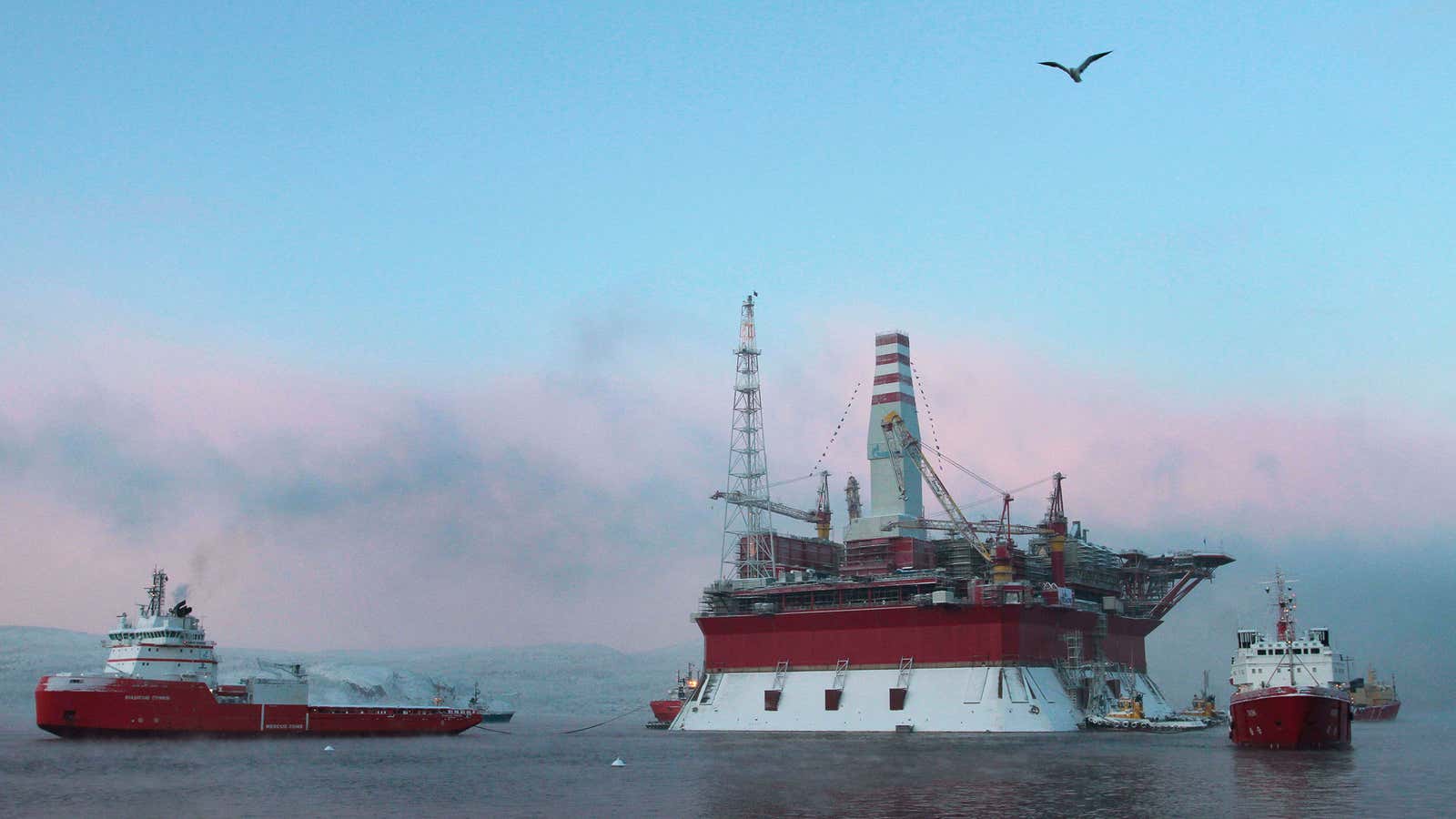BP may be closing in on a deal in Russia that would solve two big problems for the embattled British oil company. The apparent cash-and-shares agreement with the Russian state oil champion, Rosneft, could give BP a perch in the hydrocarbon-rich Arctic, a prized territory where some of its big oil rivals have already won stakes. But it would also extract BP from a troublesome marriage with a group of four oligarchs whose company goes by the acronym AAR.
The deal would involve BP selling Rosneft its 50% interest in Russia’s third-largest oil company, TNK-BP, which accounts for a quarter of BP’s global production. Relations with AAR, which owns the other half, have long been rocky, and in July, BP’s CEO, Bob Dudley, announced that the company would seek to sell its stake. Under a covenant between the two sides, the oligarchs have until Oct. 15 to agree to a price to buy it themselves. But given their relationship—the Russian side has spent much of the last two years humiliating BP and threatening to buy out its share only for firesale prices—a rapprochement seems highly unlikely.
Rosneft will therefore take a go-slow approach in order to comply with the convenant. But as evidence of the deal’s momentum, it was discussed yesterday evening by BP’s chairman and CEO, Rosneft chief Igor Sechin, and Russian President Vladimir Putin. Afterward, both BP and the Kremlin released statements confirming that it took place. Meanwhile, Sechin has been in London in discussions with banks about $15 billion in debt financing to be used for the TNK-BP deal.
Details of the proposed deal remain vague, but it seems likely that BP would get a mix of cash, Rosneft shares and Arctic drilling rights. It is still seeking to come back from the devastating 2010 Macondo oil spill, and obtaining exploration acreage in the Arctic would be a big boost. For its part, Rosneft would become an oil goliath, producing almost 4 million barrels of oil a day, catapulting it to seventh place among global oil companies from its current 16th place.
